The percentage of law students who identify as lesbian, gay, bisexual, or another non-heterosexual sexual orientation (LGB+) has grown dramatically over the last twenty years. When LSSSE first began asking about sexual orientation in 2006, 96% of law students identified as heterosexual, 2.5% were gay or lesbian, and only 1.3% were bisexual. The numbers had shifted noticeably by 2016, when the sexual orientation question was revamped slightly to be more inclusive. That year, 93% of law students were heterosexual, 2.3% were gay, 1.1% were lesbian, 2.6% were bisexual, and 0.9% were of another sexual orientation. However, by 2023, only 83% of law students identified as heterosexual. Three percent were gay, 1.7% were lesbian, 2% had another sexual orientation, and a full 10% identified as bisexual.
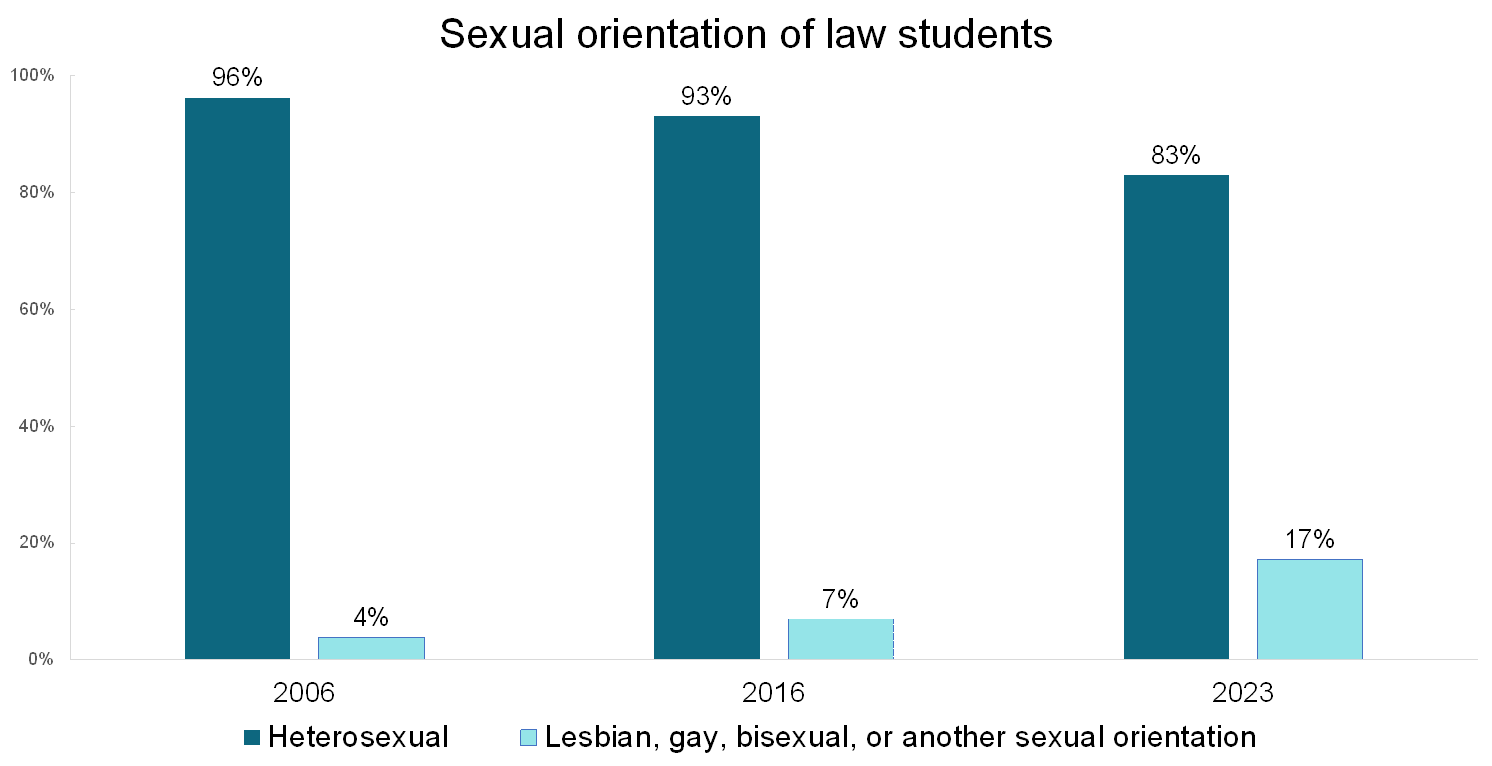
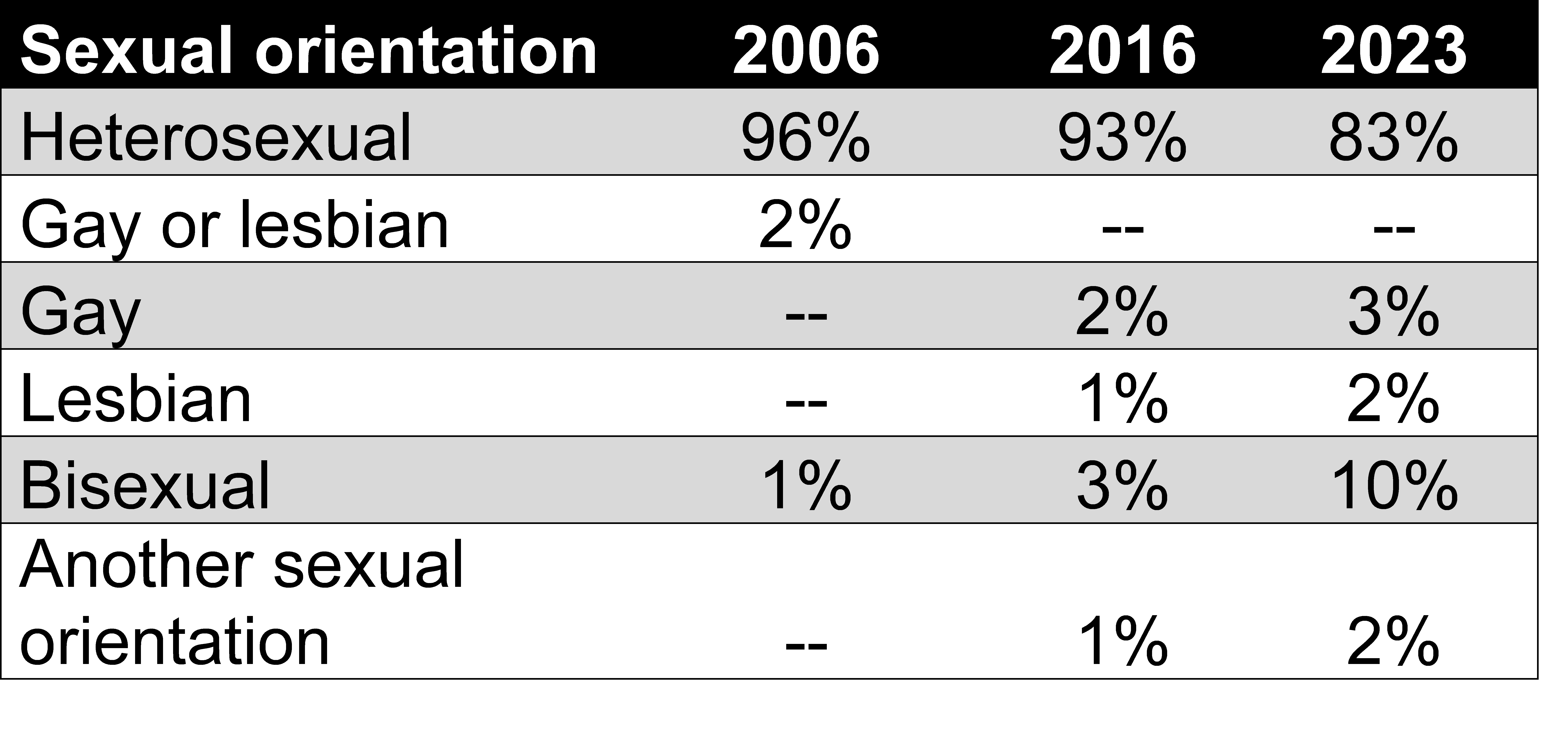 — indicates response option was not available that year
— indicates response option was not available that year
LGB+ students are somewhat less comfortable in law school relative to their heterosexual peers. For example, 72% of LGB+ students feel that they are part of the law school community compared to 77% of heterosexual students. Only half (50%) of LGB+ students believe that their law school places quite a bit or very much emphasis on ensuring that they are not stigmatized because of their identity (racial/ethnic, gender, religious, sexual orientation, etc.) compared to 61% of heterosexual students. Similarly, only about half (51%) of LGB+ students believe that their law school is a supportive environment for diversity in sexual orientation compared to just under two-thirds (64%) of heterosexual students.
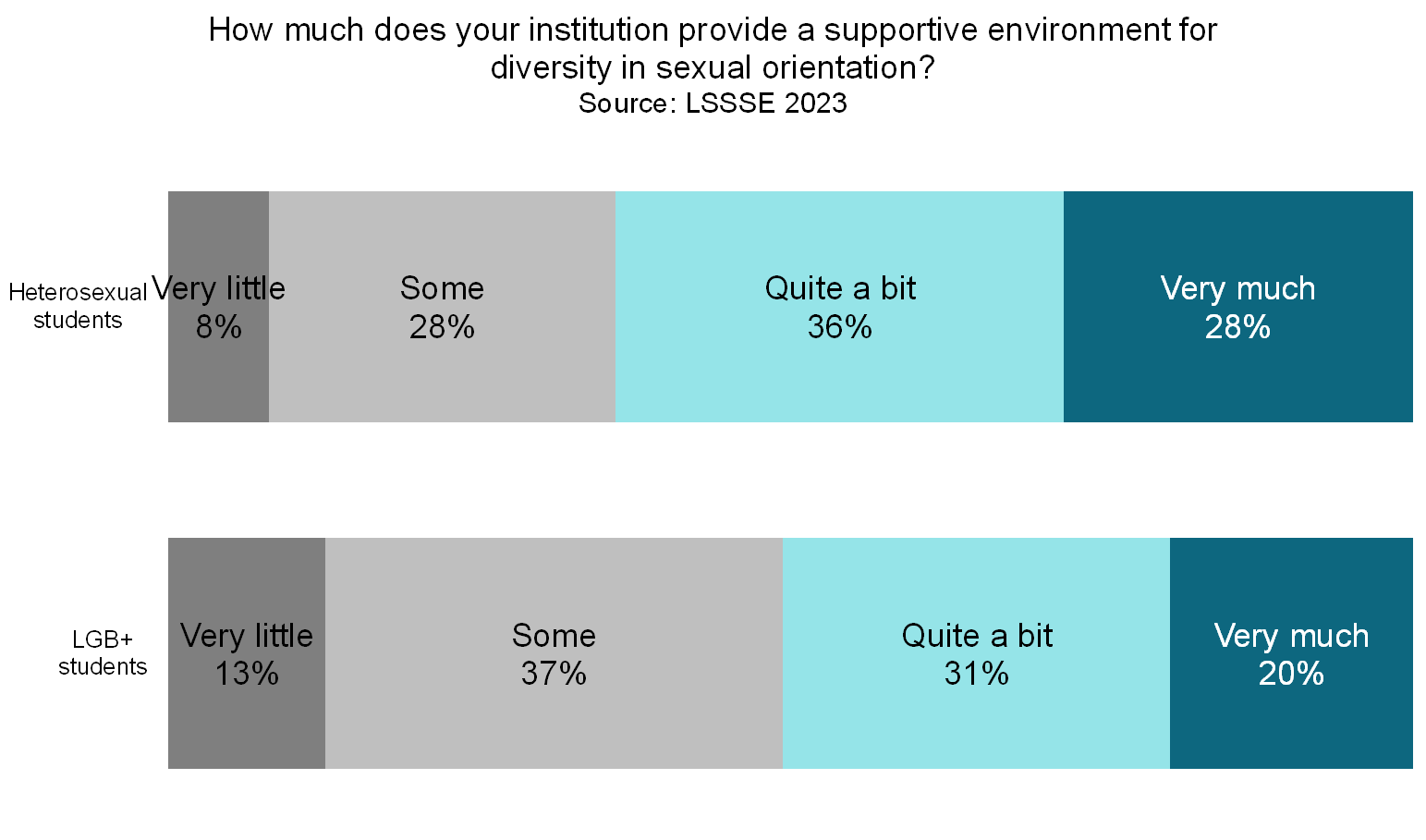
Despite the perception of a somewhat chilly climate overall, LGB+ law students are nearly equally likely as heterosexual law students to have strong relationships with law school faculty. LGB+ students rate their relationships with faculty on average 5.2 on a seven-point scale, compared to 5.3 for heterosexual students. A full 91% of LGB+ students believe their instructors care about their learning and success in law school, nearly equal to the 92% of heterosexual students who feel that way. Around four in five LGB+ and heterosexual students consider at least one instructor a mentor whom they feel comfortable asking for advice or guidance. Clearly, most students find help and support from their law school faculty, regardless of their sexual orientation.
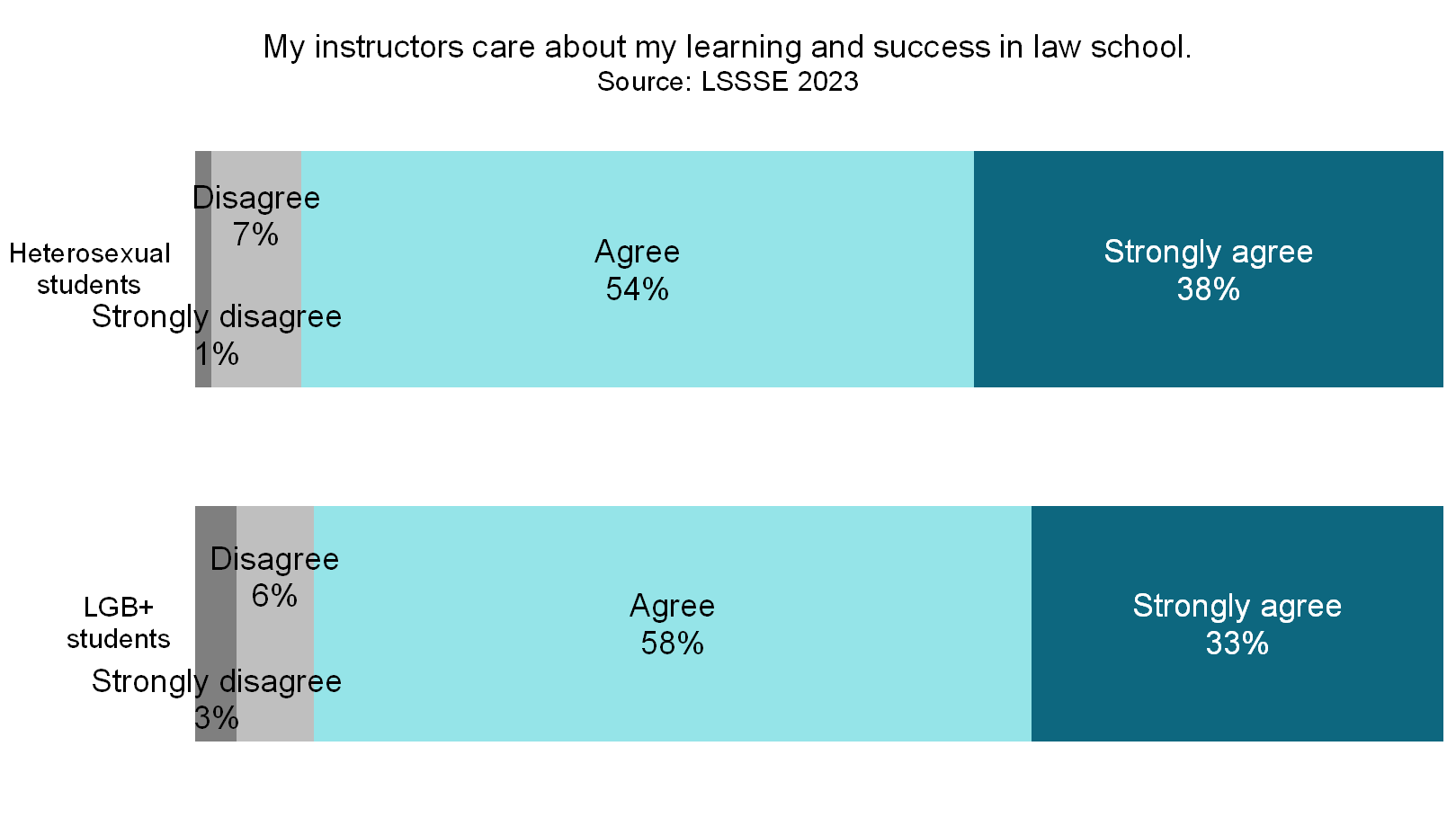
LGB+ students are somewhat less satisfied with their overall experience at law school compared to heterosexual law students. Three-quarters (75%) or LGB+ students rate their experience “good” or “excellent” compared to 78% of heterosexual students. However, LGB+ students are much less likely to be sure that they would pursue a law degree if they could start over. Just under three-quarters (74%) of LGB+ students said they would pursue a law degree and 19% were unsure. More than four in five (82%) heterosexual students would choose law school again and only 14% were unsure. Clearly, LGB+ law students are more likely than heterosexual law students to have regrets or misgivings about the path they selected.
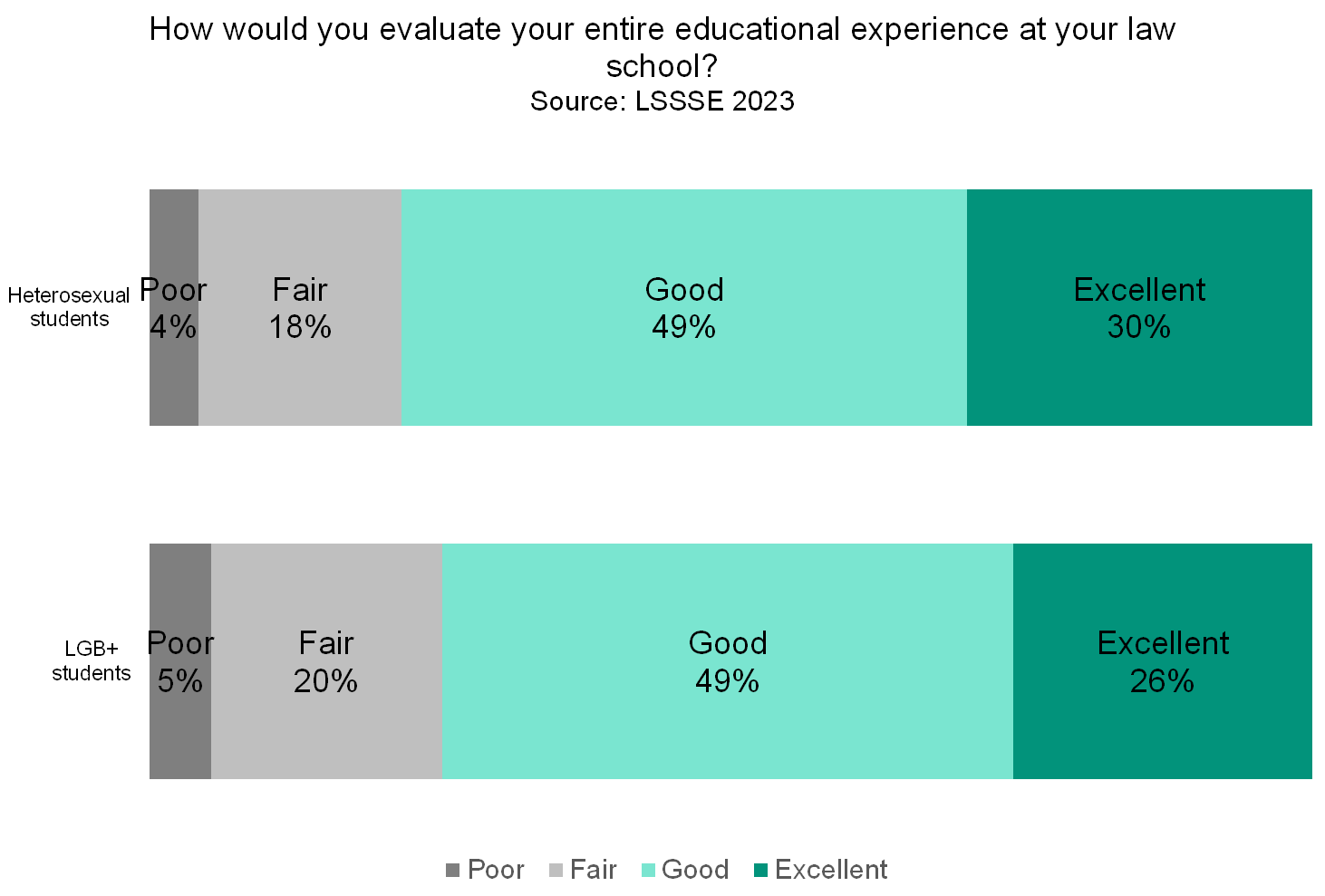
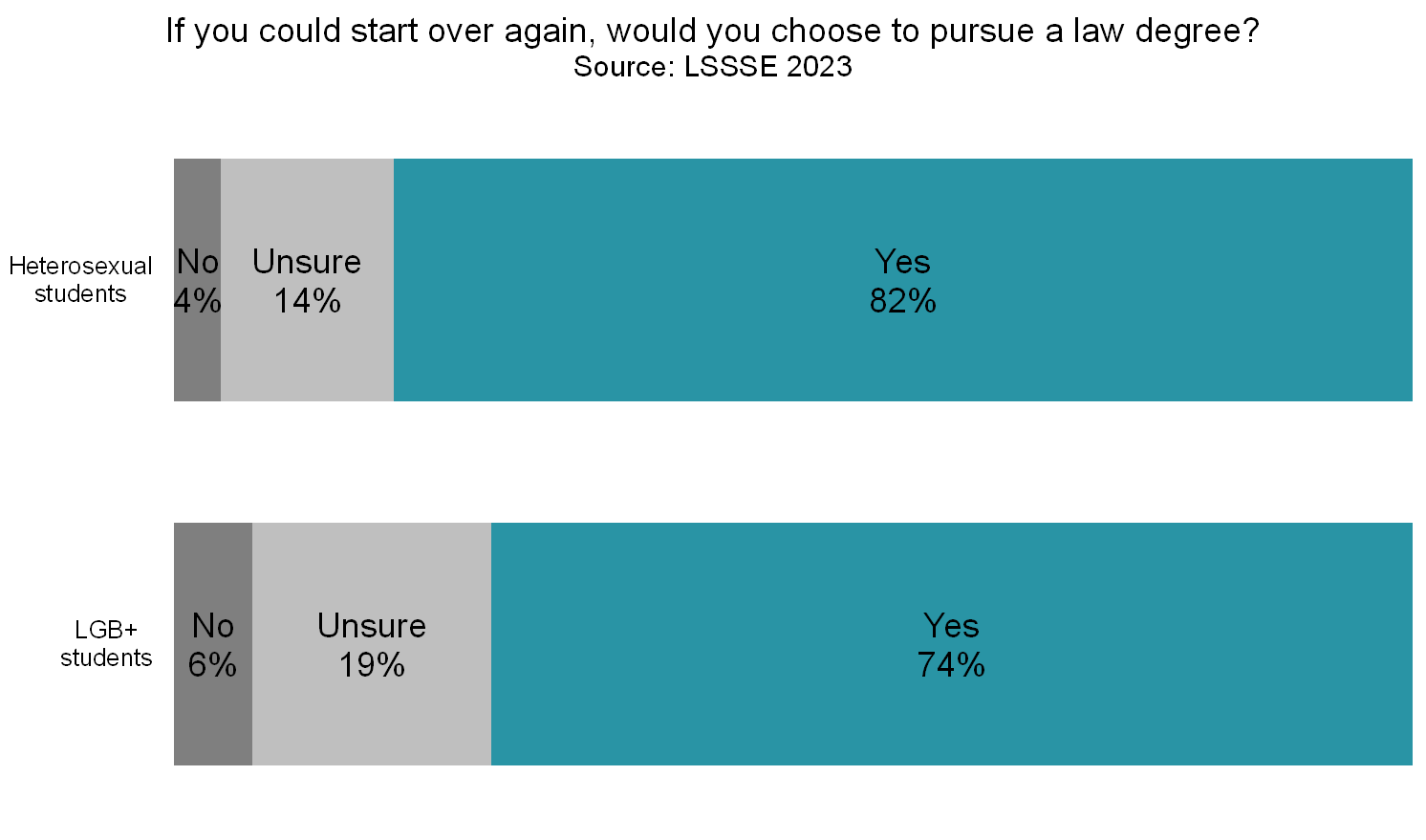
Given that the population of lesbian, gay, bisexual, and other non-heterosexual students is growing rapidly in law schools, the concerns that these students have about the law school experience deserve particularly careful attention. LGB+ law students are less likely to feel that they belong, more likely to feel stigmatized, and more likely to question whether attending law school was the correct choice for them. Interestingly, most LGB+ students feel that their instructors care, and they are equally likely as heterosexual students to have an instructor that they consider a mentor. Perhaps law schools can use these personal connections to identify and address the concerns of their lesbian, gay, bisexual, and other non-heterosexual students in order to ensure equitable educational opportunities and a more supportive law school environment.
